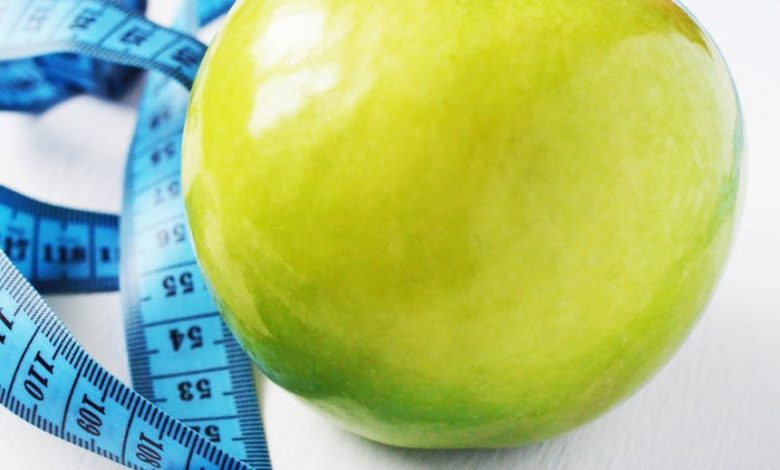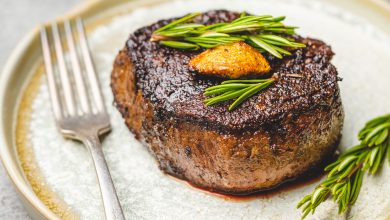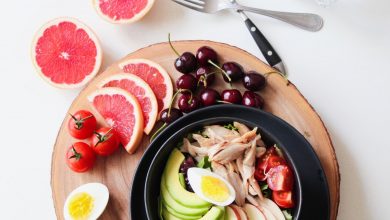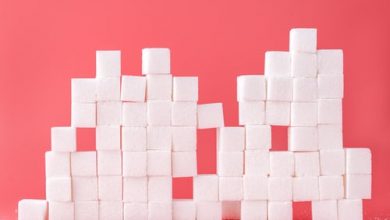
The 20 Biggest Weight Loss Myths of 2020
Many people use the new year’s energy to fuel their efforts into losing a few pounds. But, sadly, most give up prematurely due to slow progress. Yet losing weight doesn’t have to be an unpleasant experience.
While it can be a challenging journey, it can also be an enlightening and reformative phase in your life that can help you transform for the better. Your number one priority when losing weight should always be to do what’s best for you.
If you search “how to lose weight” on the internet, you’ll be faced with thousands of articles on diet fads. There are also hundreds of advertisements for supplements and workout regimes that claim to help you shed a few pounds in just a few days.
Some may be true, but most are probably not.
How do you know which claims are real and which are not?
We gathered 20 of the biggest, most conventional weight loss myths and laid down our verdict.
Myth 1: When you lose weight, you lose fat.
It’s a common misconception to think that when you lose weight, you lose fat. While this isn’t necessarily wrong, it’s also not true. In fact, there are three explanations for weight loss: muscle loss, fat loss, and water loss.
Out of the three, water loss is the fastest way to lose weight. But what you want is fat loss. Fat loss happens when you burn the fat stored in your body, while water loss occurs when you cut carbs from your diet. If you happen to lose a few pounds almost overnight, this is more likely water weight and not actual fat being lost.
Myth 2: You can target specific areas when trying to lose weight.
The honest answer is that you can’t. If you want to lose fat in a specific area in your body, also known as spot reduction, this isn’t possible. There’s been no concrete scientific evidence to back up that targeted fat loss does work.
This means that no matter how many sit-ups you do in a day, this will not burn your stomach fat. However, what you can target is muscle growth by performing bodyweight exercises focusing on specific areas, such as the chest, back, arm, or legs. With regards to fat loss, it’s best to lose it through regular exercise and a proper, well-balanced diet.

Myth 3: You should cut calories to lose weight fast.
It’s also a popular notion that a low-calorie diet is a sure-fire way to lose weight. This isn’t true and may pose more harm than good. According to Carolyn Brown, MS, RD, “Under-fueling your body is just as risky as over-fueling.”
Our bodies actually need to take in calories to function, and there is a recommended amount for everyone. The average calorie intake of a person (depending on their weight and targeted weight goal) should be around 1,200 to 1,800. Anything below the limit can cause malnutrition and subsequent overeating, which will lead you to gain pounds instead of losing them.
Myth 4: Removing carbs can help you shed a few pounds.
Another common misconception in the weight-loss industry is that carbs are evil. In fact, many diets include cutting out carbs entirely to lose weight. The best advice is not to cut out carbs, but to cut down.
Don’t remove carbohydrates entirely from your diet because this is your body’s primary source of energy. Removing carbs will force your body to convert protein into glucose, thus raising your blood sugar and insulin levels. A wiser choice would be to stick to your body’s recommended intake for carbs and to choose whole-food carbs, such as whole-wheat bread and brown rice.
Myth 5: Exercising is the only way to slim down.
Exercising alone won’t help with weight loss. If you spend hours on the treadmill or lifting weights every day, this can strain and damage your body.
The body needs a balance between exercising too little and too much. Also, there’s no point burning calories if you’re only going to get them back by not watching what you eat. Having a balanced diet paired with a moderate workout regime is the best way to reach your weight loss goals.
Myth 6: A gluten-free diet guarantees weight loss.
Let’s be clear here: being gluten-free does not guarantee weight loss. Gluten is a protein found mostly in grains, such as pasta, bread, and cereal. People who have Celiac disease avoid gluten, as it can cause damage to their immune system and prevent the absorption of vitamins.
However, no evidence eating gluten-free foods can lead to weight loss. Eating gluten-free may help you pick healthier options for food, but you will still gain weight if it isn’t paired with moderate exercise.
Myth 7: Drinking alcohol is a big no.
While it’s true that one happy hour session with friends can add a lot of calories to your daily intake, cutting alcohol from your lifestyle isn’t necessary. Yes, you can still lose weight even if you drink alcohol. The only advice is to drink moderately and monitor what you’re drinking.
In fact, there is evidence to show that drinking two to three glasses of red wine a week can actually help with weight loss and heart health. What leads to weight gain is drinking excessively. It would also help to steer clear of fancy cocktails and margaritas, as they can contain up to 500 calories a glass.
Myth 8: High-intensity workouts are the best way to lose weight.
High-intensity interval training, also known as HIIT, is the darling of the fitness industry. This training believes in reaping the benefits of a one-hour workout into a few minutes of exercise. While this may sound convenient, Panteleimon “Paddy” Ekkekakis, Professor of Kinesiology at Iowa State University, begs to differ.
According to Ekkekakis, HIIT is effective for weight loss. However, it may not be useful in the long-run. According to his recent study, Ekkekakis and his colleague, Emily Decker, found out that people who performed moderate-intensity workouts thrived better and did it longer. “I fear these programs send the wrong public health message,” said Ekkekakis. “The only objective that makes sense is to adopt a type and amount of exercise that will help you incorporate exercise into your daily life so you can be active for the rest of your life.”
Myth 9: Cheat days are okay.
On the contrary, cheat days are not okay. A cheat day is a diet fad wherein you eat healthily for six days a week and then whatever you want once a week. As James Collier, registered nutritionist and founder of Huel, puts it, “A full day of cheat eating is excessive and can be an excuse for the dieter to consume copious amounts of junk food.”
Instead, cheat days encourage people to overindulge and make it harder for people to follow their diet. This overindulging leads to weight gain rather than weight loss. Collier still maintains that a treat every now and then is a better option, as long as it fits your daily caloric intake.

Myth 10: Slimming down means no eating at night.
Ever since nutrition pioneer Adele Davis said, “Eat breakfast like a king, lunch like a prince, and dinner like a pauper,” it’s been a taboo to have a midnight meal. Eating at night has long been associated with weight gain, but now we’re finding out that it’s not true. A calorie is still a calorie; it doesn’t matter when you eat it.
However, you should take precautions when eating at night because midnight snacks often turn to midnight buffets. This leads to overeating, which then leads to weight gain. Having a light snack after dinner is perfectly fine, as long as it’s still within your calorie range.
Myth 11: All calories are made equal.
They say that it doesn’t matter whether you eat 100 grams of bacon or 1,000 grams of broccoli – they will still have the same effect on your weight. But what about the macronutrients? Undoubtedly, the nutrients of bacon can’t be compared to broccoli, right? What you put in your body matters, so watch your calories, as well as your foods.
Myth 12: Losing weight is a linear journey.
Although it’s a good idea to track your day to day weight loss progress, you might find yourself disappointed to see that it’s not a linear journey. But we want you to know that it’s okay! Your route to losing weight may not be a straightforward process.
There might be days where you lose a few pounds and a few days where you gain a little back. As long as you keep doing what you’re doing, you’ll get there. The important thing is that the overall difference in your weight is gradually decreasing.
Myth 13: Supplements can help you lose excess weight.
Unfortunately, we have to pull up the curtain behind these magic pills: most weight loss supplements don’t work. The truth is, they really are of no use unless you pair it with a proper diet and exercise.
According to a study at Oregon State University, supplements have little to no effect on weight loss. On the other hand, products such as green tea, fiber, and low-fat dairy supplements showed modest benefits, but only if paired with a low-calorie diet. If you really want to lose weight, the researcher, Melinda Manore from OSU, still recommends a healthy lifestyle of eating right and exercising moderately.
Myth 14: Obesity is about willpower.
It’s easier to blame obesity on lack of willpower, but there’s more to it than that. For one thing, genetics play a significant role in obesity. People who have a high genetic risk of developing obesity are more likely to be an unhealthy weight when they grow older.
Other factors that contribute to obesity include a sedentary lifestyle (sitting for long periods in offices, for example). Those living in deprived areas with no access to proper healthcare and affordable healthy food are also at risk. It doesn’t matter how much willpower you’ve got; if you have no access to healthy food and live in an unhealthy environment, the chances for obesity are higher.
Myth 15: Eating fat will make you fat.
It only makes sense that eating fat will make us fat, right? It does and doesn’t. Sugar, along with fat, are the top contributors to weight gain, but usually when the two are eaten together.
However, when natural fats are eaten alone, it can actually help you lose weight. Studies have already proven that eating a low-carb diet (meaning more fat) actually helped shed more pounds than a low-fat diet. Just make sure to eat healthy fats, such as avocadoes or salmon.

Myth 16: Lifting weights can make you bulky.
Lifting weights is an excellent workout if you’re looking to lose weight, but many are hesitant to try it because they don’t want to look bulky. But fear not because strength training does precisely the opposite of that.
You will not only burn more calories lifting weights, but you will also encourage muscle growth and fat loss. Strength training can give you the type of body that you actually want by shaping and toning your muscles.
It will shape you and not make you bulky, as the most critical aspects of a bulky appearance are excessive fat intake. This leads to a high body-fat composition, which is usually an indicator of an improper diet. Strength training alone isn’t the culprit though, and you should be fine lifting heavy at the gym.
Myth 17: Eat less than three meals a day to encourage weight loss.
Deprivation is not a great motivator for weight loss, so we don’t recommend highly restrictive diets. Unfortunately, there are a few of these diets out there, such as the OMAD (One-Meal-A-Day) regime. Eating less than the prescribed three meals a day can do more harm than good.
In fact, most of the time, we need to increase our calorie intake to lose weight. Eating less in a day will starve your body and cause other problems like mood swings, fatigue, or skin breakouts. Also, it will likely increase the chances of binge-eating once the fasting is over. So eat more often, but eat right.
Myth 18: Detoxing is the best way to lose weight.
The honest answer here is that detoxing is not the best way to lose weight. This is because most detox methods encourage restricting calories and overly consuming liquids. They also tolerates terrible eating behavior, such as extreme fasting and taking large amounts of supplements.
If something says that it can give you results overnight, it’s a false claim. Losing weight is not an overnight process – you can’t undo years of weight gain in just a week. The best way to slim down is to consume a well-balanced diet and to adopt exercise that fits your needs.
Myth 19: Cardio alone sheds excess weight.
When a person wants to lose weight, the first thing they do is get on a treadmill and runs. It’s so well-known that doing cardio will lead to weight loss that it’s practically the law, but that’s not necessarily true. Cardio is only one of the many exercises you can do.
If you’re only looking to trim down body fat, cardio is an excellent choice. But overall, the best way to lose extreme amounts of fat is to pair cardio with strength training. Lifting weights is a great way to reduce fat and build up muscles to shape your body.
Myth 20: Diets work.
Let’s face it: diets don’t actually work. There is no right diet because each person has different needs. Our bodies are unique and thus will need a unique set of vitamins and minerals to keep it pumping.
Diets don’t work unless paired with exercise. If you’re not active, you’re basically restricting yourself by eating less, and that’s not healthy. You don’t need to go to the gym every day – even just taking a short afternoon walk or run can do the trick. So don’t diet; instead, eat right, and pretty soon you’ll be able to get where you want to go.

The Best Way to Lose Weight
After debunking all 20 weight loss myths, the question we all have to ask ourselves is: what is the best way to lose weight?
The answer is: there’s no right answer!
You can exercise all you want, even every day, but if you don’t eat the right food and overindulge with junk food, you won’t be able to shed excess weight. The best way to lose weight is still to team healthy eating with an active lifestyle that you enjoy. That way you will keep the weight off for life.
The bottom line is that how you lose your weight is up to you and what you’re comfortable with. You don’t need to rush if you don’t want to, and you certainly don’t need to set high expectations for yourself just after day one.
Most people forget that one of the most effective ways to weight loss is to keep a positive and steady mindset. If you enjoy what you do, it will slowly become part of your lifestyle instead of just a chore.



